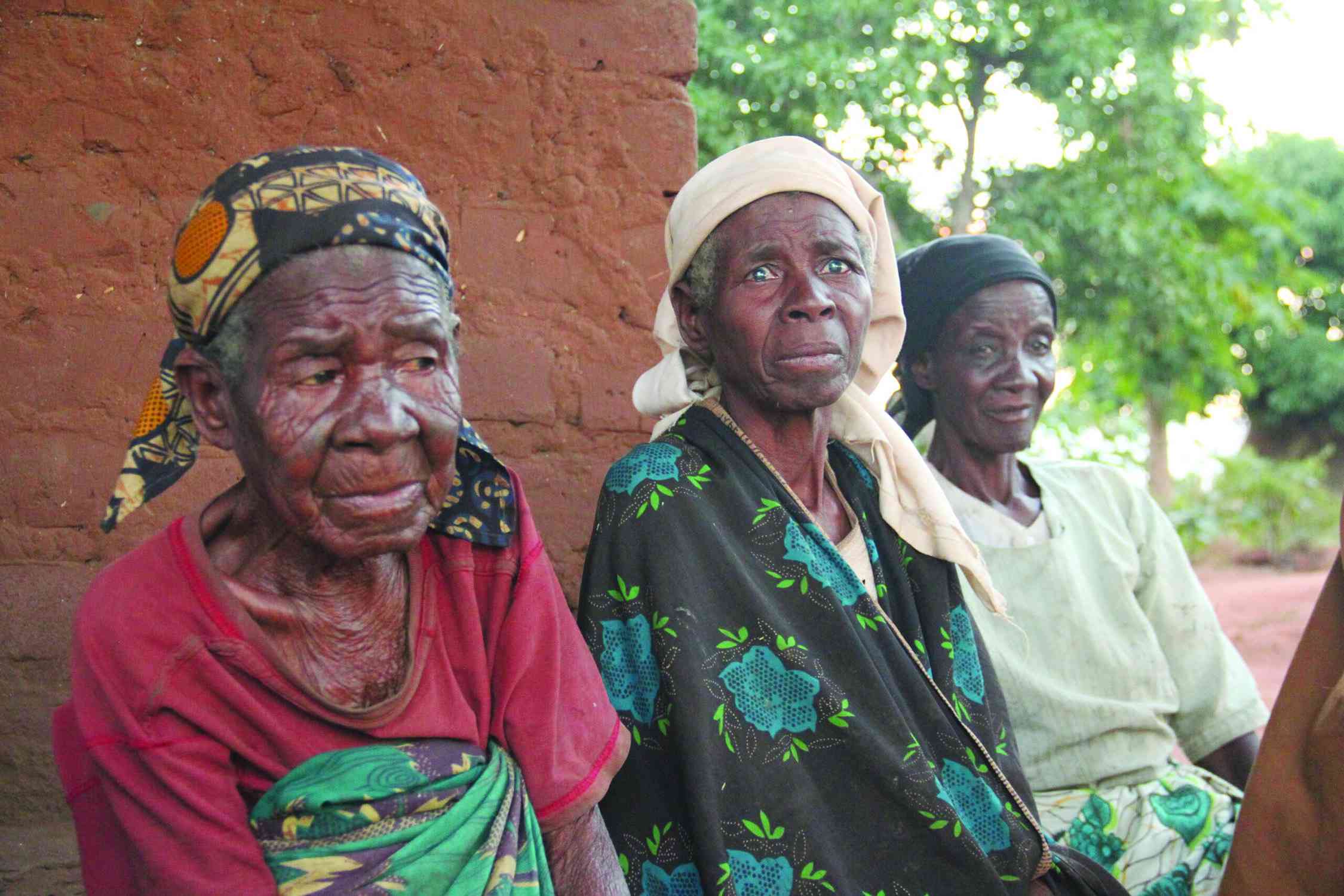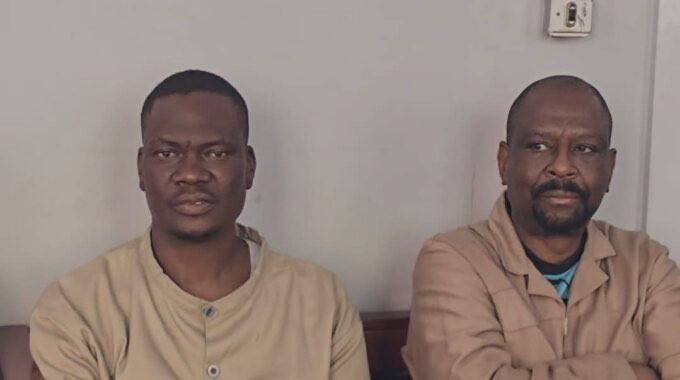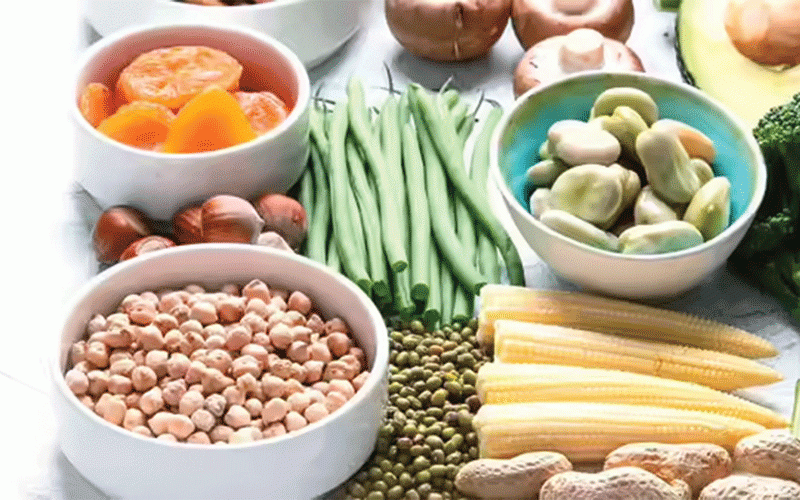
AFTER a fatal car accident that led to the death of her husband and left her injured, Fiona was still recuperating with a plaster cast supporting her neck when she was finally allowed to enter her matrimonial home.
Her in-laws would not let her go there alone or take anything out of the use.
Only after mediation by a female member of the husband’s family, who was also a widow, was Fiona allowed to take her own personal effects — clothes, shoes and bags.
“They followed me everywhere to supervise the things I took. I noticed some things were missing … his guitar, keyboard. I wanted to pick some music CDs too.”
But she says she was told: “No you can’t pick this, that belongs to our brother.”— referring to her late husband.
Fiona says she could not even take the things that she bought with her own money.
“They took everything, even spoons and pots,” she said.
Once displaced from her matrimonial home, she and her three young children, the youngest being only 10 months old, were luckily taken in by her mother, who was also widowed.
- COP26 a washout? Don’t lose hope – here’s why
- Under fire Mnangagwa resorts to Mugabe tactics
- How will energy crunch transition impact transition to renewables?
- COP26 a washout? Don’t lose hope – here’s why
Keep Reading
On June 23, 2025, the official United Nations endorsed International Widows Day, it will be for Fiona, exactly 5 116 days of learning to live with loss, to grow around grief, to be a single parent and to find meaning in a life forever changed — 5 116 days of discovering strength she did not know she had.
Despite all the recovery progress she has made, Fiona says: “I don’t think grief ever completely goes away. Often my grief feels like homesickness, you know how when you were away from home and you ached to be there where you felt safe and secure.
“I feel so uncomfortable and scared, even after all these years. I see that as one longs for the home that they feel safe and familiar with, I long for my old life — the life I knew and was familiar with.
“I don’t want this new life. I don’t want to be here. It hurts. I am scared. I long for the beautiful life I had before.”
While Fiona’s story has a not-so-bad ending, this is not the case with most widows.
Widowhood, the death of a spouse, is considered as one of the most stressful events that can take place in a person’s life.
Widowhood has been found to have a negative association with the financial well-being of women.
When a woman loses their partner the burden of catering for the home becomes unbearable most especially in cases where the woman was a full-time housewife, comes from a cultural background where the husband’s presumed assets are confiscated by the in-laws or where the woman is aged.
There are 300 million widows and 500 million of their children worldwide, according to a Global Fund for Widows, June 2024 report, and yet they remain disregarded within policy agendas, national action plans and the social discourse. When a woman becomes a widow, she is labelled with a strong cultural bias both as a woman and a widow and so she becomes subject to a dual form of marginalisation.
This nurtures three main forms of inequalities; disinheritance, discrimination and harmful traditional practices.
The legal, economic and social barriers that many widows in Zimbabwe endure often lead to financial deprivation, making them unable to cover their basic needs.
Furthermore, widows may be excluded from economic opportunities due to a lack of education and systemic discrimination.
Limited access to social safety nets forces many widows into exploitative informal labour relationships, which also increases their social vulnerability.
The persistence of harmful practices against widows is ingrained in traditions and patriarchal systems that shape social attitudes. Such customs are rooted in superstition, where a widow’s perceived culpability in their husband’s death leads to marginalisation.
Those who challenge these beliefs face the threat of backlash or even violence. This entrenched culture of stigma and ostracism strips widows of the community support they desperately need.
Challenge ahead: Widows’ inclusion
It is essential that women’s access to and control over economic resources increases — for instance through entrepreneurship, access to finance economic opportunity, legal literacy and a public forum for widows.
According to Sevak et al in the paper The Economic Consequences of a Husband’s Death, In the 1970s, 37% of new widows became poor after widowhood.
“By the 1990s, this rate had fallen to between 12% and 15%. Nevertheless, widowhood remains an important risk factor for transition into poverty. Faced with the loss of resources in widowhood, women have only a few options available to improve their economic status.”
One of the very few widows support groups in Zimbabwe, Circle of Comfort has, as a way of acknowledging that these discriminatory traditions are located within communities, created partnerships and coalitions at the grassroots.
Among its other activities, Circle of Comfort organises public dialogues with community leaders to rethink patriarchal structures and build local solutions that are culturally sensitive yet progressive.
According to the World Bank Organisation, one in ten African women above the age of 14 is widowed, and 6% are divorced.
In Zimbabwe, an estimated 1% of all men are widowers while 9% of women are widows. Strikingly, while the share of widowers among men aged 75 and older is about 11%, it is 77% for women of the same age.
In Zimbabwe, the socio-economic status of widows is incomparably stressful due to certain traditional barriers to assessing the land, capital, credit, employment, housing and other means of livelihood.
In other words, widowhood, therefore, deprives women of homes, agricultural land and other assets. This often limits the ability of widows to become economically secure.
In tandem with grassroots efforts such as the Circle of Comfort’s, there must be a greater push for strengthening legal frameworks that protect widows against local traditions.
As a society, we need to be more intentional about alleviating the hardships of widows. Weak legal frameworks in African countries compound the issue, where laws designed to protect widows from exploitation are poorly enforced, if they exist at all. Moreover, widows often lack legal awareness.
The situation is not helped by a growing awareness of the economic value, especially of land, of the assets a widow may be due to inherit.
Finally, widows must have a platform in decision-making processes, whether in legal reforms or humanitarian initiatives, to ensure that every development solution reflect their lived experiences and addresses the cause of their marginalisation.
By combining global advocacy with localised action, organisations such as Circle of Comfort are helping to pave the way for a more equitable future for widows.
Circle of Comfort is commemorating International Widows Day on Sunday, 22 June, from 9am to 2pm in the Nelson Mandela Hall at the Harare Showgrounds. All widows are welcome to this free event.
- Mpakula is a life coach specialising in menopause. These weekly articles are coordinated by Lovemore Kadenge, an independent consultant, managing consultant of Zawale Consultants (Pvt) Limited, past president of the Zimbabwe Economics Society and past president of the Chartered Governance & Accountancy Institute in Zimbabwe. — [email protected] or mobile: +263 772 382 852.











